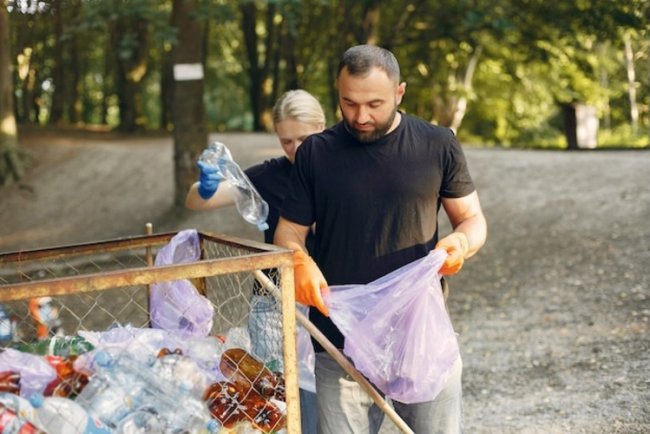Microsoft Partners With Carba For Carbon Removal Credits
Microsoft signs five-year deal with Carba to purchase 44,000 carbon removal credits starting in 2025.

In a landmark step toward reaching its sustainability objectives, Microsoft has entered a five-year deal with Minnesota-headquartered climate tech firm Carba to buy 44,000 carbon removal credits. The credits, which will start retiring in 2025, reflect Microsoft's increasing bet on permanent carbon sequestration technology and reflect a make-or-break vote of confidence in Carba's innovative pyrolysis-based biochar technology.
Carba's novel process revolves around a patented autothermal pyrolysis reactor which converts biogenic waste—biological material like crop residues—into stable biochar. This is resistant to degradation and will be safely stored in local landfills under reduced-oxygen conditions, where the chances of re-emission into the air are significantly diminished. In contrast to conventional biomass decomposition processes, Carba's process keeps carbon captured from organic material sequestered for centuries, meaningfully contributing to the global fight to turn around climate change.
The partnership is part of Microsoft's larger sustainability plan, which involves becoming carbon negative by 2030. As part of this vision, the company is focusing on the purchase of high-quality carbon removal credits that can be properly measured and tracked. Brian Marrs, Microsoft's Senior Director for Energy & Carbon Removal, highlighted that the transaction is not merely about near-term offsetting but also about testing the long-term effectiveness and scalability of biochar technology. "By colocating biomass supply chain delivery, pyrolysis, and end-use and storage, Carba's biochar burial has the potential to be a scalable and affordable climate solution," Marrs said.
Carba is, in its turn, making this deal look like a record that justifies its holistic business model for removing carbon. This business model covers the whole production chain—from raw material sourcing for biomass to producing biochar and guaranteeing it safe, auditable storage. Andrew Jones, CEO of Carba, voiced excitement about collaborating, stating it serves both action on climate as well as societal benefits. “We’re thrilled to contribute to Microsoft’s portfolio by providing high-quality carbon removal credits that will be retired starting in 2025,” Jones said. “Our fully integrated approach—combining biomass sourcing, processing, and secure storage—enables us to scale quickly while having the potential to deliver significant community co-benefits.”
The climate benefit of biochar is not limited to carbon sequestration. When utilized as a substitute for daily cover in landfills, biochar not only sequesters carbon but potentially also enhances soil quality and mitigates landfill methane emissions. Microsoft's interest in these other co-benefits demonstrates its enthusiasm for enabling multi-dimensional climate solutions that transcend carbon accounting.
This collaboration also reflects growing public-private momentum behind next-generation carbon removal technologies. Carba previously received a $7 million grant from the U.S. Department of Energy under the Carbon Negative Shot initiative—a federal program designed to support scalable, cost-effective methods for removing carbon dioxide from the atmosphere. The grant enabled Carba to expand its operations and refine its technology, further validating its approach as a viable part of the carbon removal ecosystem.
Microsoft's deal with Carba is one of an increasing number of business partnerships that seek to unlock the potential of engineered carbon removal. Although nature-based solutions like reforestation continue to be valuable, the tech industry giant is actively diversifying its carbon removals portfolio with long-lasting techniques like direct air capture and now biochar. In doing this, it aims to set an example and contribute to the development of a strong marketplace for certified carbon credits that can accommodate the magnitude of global emissions.
Support for Carba's project is also a sign of growing confidence at Microsoft in technologies that provide transparent monitoring, reporting, and verification (MRV) processes. Previously, one of the criticisms of carbon offsets has been a lack of transparency in how to track their actual-world effect. Through Carba's end-to-end method, every credit corresponds to a quantifiable and long-term method of sequestration, and this helps to establish trust in a quickly developing arena.
As the globe looks for how to achieve the Paris Agreement goals and slow the rate of increasing global temperatures, collaborations such as this illustrate the essential role played by creative climate tech startups and progressive businesses. By investing in innovative technologies such as Carba's, Microsoft is not only paying for emissions reductions but also driving the creation and rollout of robust carbon removal solutions that can eventually become the new normal.
With deliveries of the carbon credits set to start in 2025, the next few years will be a trial not only for Carba's capacity to upscale its solution, but also for the wider viability of biochar as a cornerstone of global efforts at decarbonization.
What's Your Reaction?

















